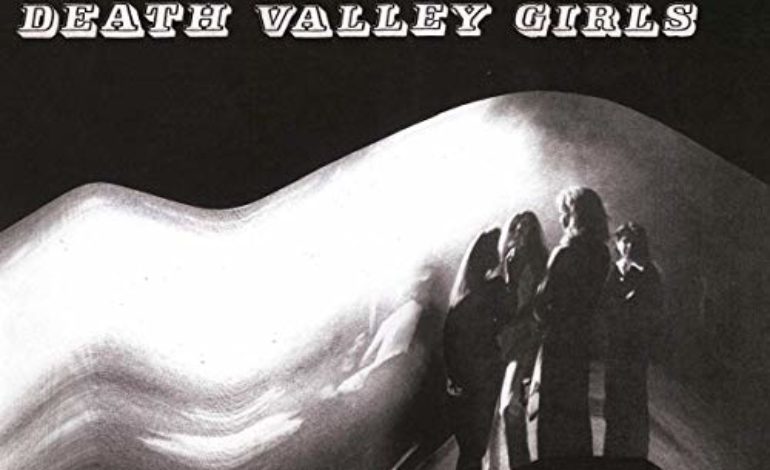

An ode to all our fears
If you are familiar with the mysterious and sometimes violent wanderings of the depths of the human soul by the Los Angeles-based Death Valley Girls, then you are probably familiar with the slight cold breeze which often accompanies their work. Known for their ghost stories, dreams of alien encounters, instances of possession and alignment with the darker and more spiritual side of life, Death Valley Girls, as their name suggests, is made up of three powerfully mystical girls and one guy, each uniquely essential to the esoteric troupe of individuals.
Although most would prefer to abstain from directly associating with the occult and would rather live a dull but substantial life, away from the realm of the unknown, this band embraces it. Allowing their paranormal experiences to unite them and penetrate their sound, their third album Darkness Rains really does sanction the necessity of facing the “darker” aspects of life.
Through the harmonization of divine feminine intonations, driven by mosh-worthy explosions of electric guitar, the influence of ‘70s and ‘80s glam rock, ‘60s rock and roll and the dynamic expression of the riot grrrl era shine through their work. Following the band’s sophomore hit Glow in the Dark, released in 2016, which uniquely cemented their status as the hidden occult gem of modern indie rock, Darkness Rains does not hit quite as hard. But, audiences will still be happy to note that there is still some magic situated under the rubble.
Opening with “More Dead” and “(One Less Thing) Before I Die,” Death Valley Girls deliver the usual disconcerting of the senses with overlapping yet juxtaposing guitar riffs, eerie chants and aggressive drum beats. “Disaster (Is What We’re After)” is emblematic of the individualist, anarchistic ideal brought forth in previous bangers like “I’m a Man Too” of Glow in the Dark, in which the girls cry out for revolution and “staging an evolution.”
Following the same attitude, “Unzip Your Forehead” implicates the exact message that punk revolutionaries of the ‘70s and ‘90s suggest, which is that the masses need to “be careful what they wish for” and “be careful what they see,” in order to avoid systemic colonization of their minds by the elite rulers of society. “We just want to eat your brain, just to keep them sane,” yell the girls, warning humanity of the abuse that they will inherently endure under this global capitalist system.
Breaking away from their anti-establishment prose, “Wear Black” mourns the loss of a love, encouraging listeners with a steady melody that time will continue on, and so must they. “Abre Camino,” “Born Again and Again” and “Street Justice” bring back the battle cries, however, with their themes of female-led revolution through witchcraft and magic and statements that “the ultimate free is yours to take” and that if we “stand tall together,” we can own the street.
Slowing down with “Occupation: Ghost Writer,” the album winds down its wild saxophone sounds and alien frequencies with a steady groove, although the truth is never too far away. This is made explicit in album closer, “T.V. Jail in Mars,” where audiences face the reality that “we’re all alone until we die” and “meet up in the sky.”
Through the culmination of Bikini Kill-like vocals, omniscient chanting, numerous guitar solos and the eerie chime of keys, Death Valley Girls force listeners to assess the reality of their situation and to question everything in life. This album truly drives home the message that even when darkness rains we can find freedom once we can embrace the murky waters which sit beneath us, and that concealment is not fulfillment.
